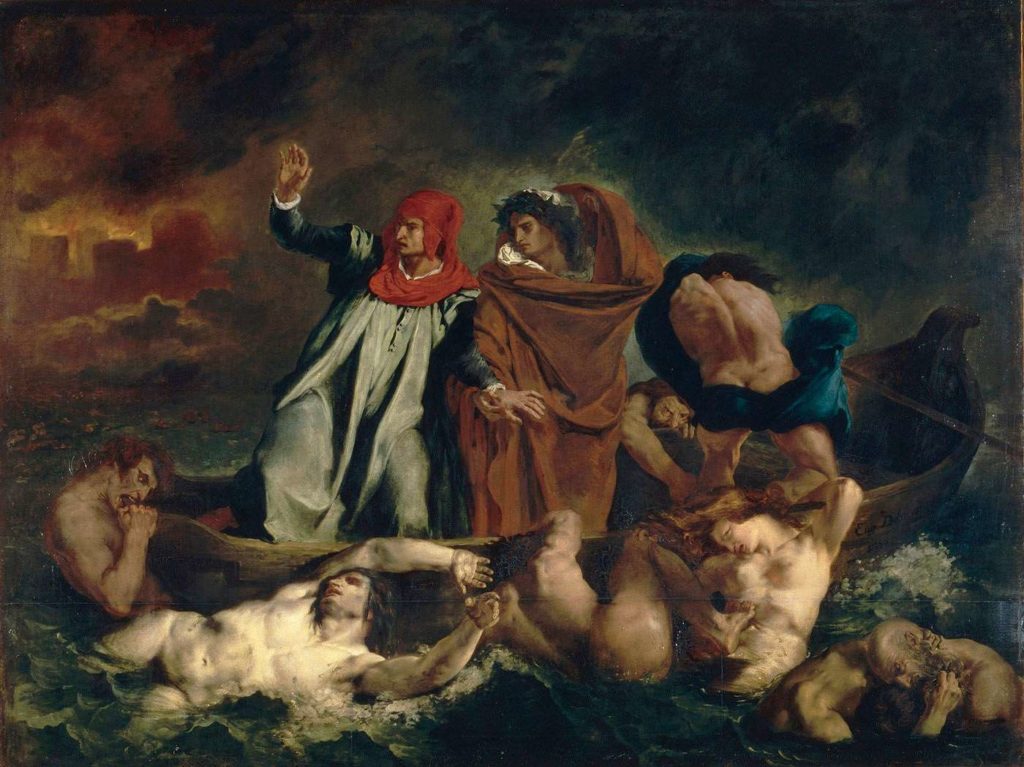Why Bother?

by Carl Nelson
Lately I’d forced myself to take a digital break, gone off-grid, done a current events fast for various stretches in order to restore my equanimity (You don’t really know what equanimity is, until I lose it – full disclosure.) The meme that finally did me in and whirled me out like a washing machine on spin cycle was this quote by Dante Alighieri: “The hottest place in Hell are reserved for those who, in times of great moral crisis, maintain their neutrality.” If they had substituted “maintained their heads” for “maintain their neutrality,” that certainly would pass for the required punishment by today’s standard. So I rebutted.
What would ostensibly pass for a decent thought with a virtuous, Liberty-storming-the-barricades ring, I began, is finally a declaration enough to draw everyone – any peaceable person endeavoring to mind their own business into a no-holds-barred fray. (And, by the way, I don’t care who the hell you quote.) As the thread grew more and more acrimonious I had to point out that this was precisely the position of Hamas. In fact, they had corralled and ensnared an entire ‘country’ within it.
“I would surely agree with you about what should be done with Hamas. (“Push them into the sea, works for me!”) Nevertheless, it is quotes such as those above from Dante that provide the thinking that fuels Hamas. Hamas is rabid in their belief that the sole reason for their existence is to destroy the State of Israel and that it necessarily must be the sole endeavor of anyone within Gaza. Even their fellow Muslims in neighboring countries treat them as toxic. Hamas is a current embodiment of this quote. Life – outside of their moral fixation – has no purpose. To embrace this quote is to make a war of all existence – as there is no end to the “great moral questions” of our (or anyone’s) time. Certainly, flowers and puppies will have to go. Can you think of anything more horribly neutral?”
But, taking one step beyond my stand for the rights of neutrality (and flowers and puppies) lately the notion has occurred to me, ‘Why bother at all?’ I’ve started “Bleak House” by Charles Dickens. Was legal misery ever so well written of? Oh my goodness, the unending quagmire Dickens describes in just the opening chapter is a harbinger for any circle of an endless Hell.
What does Dickens’ opening chapter “In Chancery” describe but an endless, interminable wrangling, which pulls more and more of the uninvolved into its orbit: “…no man’s nature has been made better by it. In trickery, evasion, procrastination, spoliation, botheration, under false pretences of all sorts, there are influences that can never come to good.”
Thank God, this was then!
But doesn’t it seem a lot like now?
It made me think that perhaps entering into the fray isn’t the wisest move. As Dickens himself said of his experience before the bench: “I was really treated as if I were the robber instead of the robbed.” He decided to never again become involved with Chancery again, remarking bitterly, in 1846, that “it is better to suffer a great wrong that to have recourse to the much greater wrong of the law.”
My intuition is that those who would seek to make everything political, (because everything is of “great moral issue”), are like Chairman Mao seeking a Continuous Revolution and in due course unleashing the Chinese Cultural Revolution. Wasn’t that a fine event! That is, everyone at one another’s throats. What a thing to wish upon all of us?
Is there a better way to approach the problem?
Lately I’ve grown more and more convinced that the best way to combat evil is not to feed it. What caused the outrage in Gaza, but the Biden administration freeing up of frozen Iranian funds? What has caused the incredible flourishing of Islamic terror over the past century but an incredible influx of petro dollars? Who is censoring us currently but a burgeoning Administrative State all paid for by printed money?
My solution: do not finance evil. And as a sub-solution: stop forcing neutral parties to finance moral crusades. Government taxes have no business being spent to ‘solve’ social problems. A social problem represents society working the solution organically and through personal agency. For those who are outraged by “great moral crisis,” let them spend their own money. (Let’s see how quickly the “outrage” dissipates… and the problem is solved!) In Medieval times, when Kings had to shop among their nobles for the funds and soldiers to fight their wars, their territorial aspirations were curtailed.
Let’s stop plowing under the flowers and puppies to fertilize ground for a race of soldiers sprung from a soil sown with dragon’s teeth.
In my own crystal ball, I imagine a better world in which a citizen is able to purchase the amount and nature of government they wish, and not pay for that of another’s choosing. I’m unable to count how many difficulties this would make moot! How many new laws this would obviate! After all, what is a new law currently but another crony corporate start-up? Why, we might even have time to read needed legislation before we pass it. Perhaps take a brief moment to discuss it.
I keep searching through the fluids of my mental currents for a way in which this might be accomplished. I’ve only found this one hint: Short of God, the free market seems the next best advocate for individual human agency that has ever been created. “The customer is always right.” Wouldn’t this be a great stance for our government to adopt? It could rank right up there with, “We hold these truths to be self-evident…”